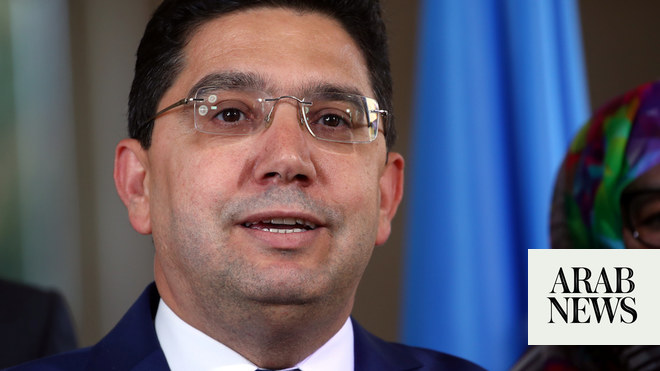
US President flaunts regional foreign policy achievements to world leaders
Blames China for coronavirus pandemic as general debate gets underway
UNITED NATIONS: Donald Trump told world leaders Tuesday he “has never been more optimistic” about the future of the Middle East.
In his address to the UN General Assembly, the US president trumpeted his foreign policy achievements, particularly in the the regions.
He said the Abraham Accords signed between Israel, the UAE and Bahrain last week were groundbreaking and came thanks to a new approach by his administration.
#WATCH: US President Donald #Trump insists that the @UN “hold China accountable” for how it handled the emergence of the #coronavirus #UNGA #UN75 #COVID19https://t.co/2DJ2uy1woh pic.twitter.com/yIxPyvr46t
— Arab News (@arabnews) September 22, 2020
“We reached a landmark breakthrough with two peace deals in the Middle East, after decades of no progress,” Trump said in his address delivered by video.
“Israel, the United Arab Emirates, and Bahrain all signed a historic peace agreement in the White House, with many other Middle Eastern countries to come. They are coming fast, and they know it’s great for them and it’s great for the world.”
Trump, who faces an election on Nov. 3, said during his presidency the US withdrew from the Iran nuclear deal and imposed crippling sanctions on “the world’s leading state sponsor of terror.”
He said the US had “obliterated” Daesh and killed its leader Abu Bakr Al-Baghdadi. He said under his watch the American forces had also taken out Iranian general Qassem Soleimani, who he described as “the world’s top terrorist.”
Trump also took aim at China, blaming the superpower for unleashing the coronavirus pandemic on the world.
Speaking a shortly after Trump, China’s President Xi Jinping warned the world not to “politicize” the fight against coronavirus.
His speech came during the UN’s first virtual meeting of world leaders.
Among the speaking on Tuesday were Turkish President Recep Tayyip Erdogan, Vladimir Putin, and French president Emmanuel Macron.
Erdogan used his speech to signal Turkey"s position on the eastern Mediterranean, where his country had been accused of provacoatively caarying out energy exploration in disputed waters.
From the Middle East, Iranian president Hassan Rouhani will take the virtual floor as his country comes under huge pressure from the US over the crumbling nuclear deal.
Jordan"s King Abdullah II and the Emir of Qatar will also deliver their addresses.
After Monday"s introductory session marking the UN"s 75th anniversary, the “general debate” is the meeting"s central event — speeches from each of its 193 member nations.
They traditionally serve as a platform for countries to tout accomplishments, seek support, stoke rivalries and express views on global priorities.












